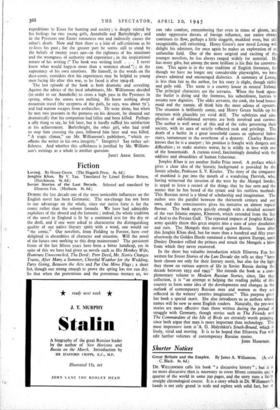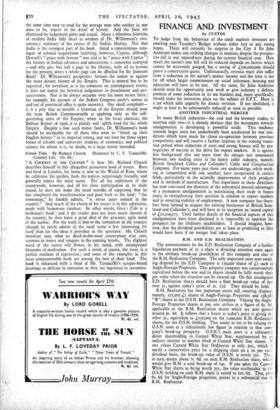Shorter Notices
• C. Black. 8s. 6d.)
DR. WILLIAMSON calls his book " a discursive history " ; but it is no more discursive than .is necessary to cover fifteen centuries and 3 quarter of the world in some zoo pages, and the story runs a fairly straight chronological course. It is a story which in Dr. Williamson's hands is not only grand in scale and replete with solid fact, but it the same time easy to read for the average man who -neither is, nor aims to be, expert in the detail of history. And the facts are illumined by judgement pithy and sound. Many a laborious historian, of modern India falls short in wisdom of Dr. Williamson's two- sentence summary of the causes of the Indian Mutiny. Not that India is the strongest part of his book. Amid a conscientious cata- logue of colonial acquisitions (omitting, however, Cyprus, although Disraeli's " peace with honour " was said to be " peace with Cyprus ") the history of Indian advances and annexations is somewhat scamped and why give but half a page to the Mutiny, with all its lessons for the present, when a whole page can be afforded for the Jameson Raid? Dr. Williamson's perspective favours the nearer as against the more distant history of the Empire. This is natural but to be regretted ; for trenchant as is his comment on contemporary events, it does not match his historical judgement in detachment and per- suasiveness. Nor is he always accurate over his more recent facts ; for example, his account of the Indian Congress party's moves in and out of provincial office is quite incorrect. One small complaint— it is a pity that so notable a historian of the Empire should treat the term British Commonwealth as applying only to the self- governing units of the Empire, when in the locus classicus, the Balfour Report of 1926, it is plainly and fightly used for the whole Empire. Despite a few such minor faults, Dr. Williamson's book should be invaluable for all those who want to " brush up their English history " in its imperial netting, and not least for those upper forms of schools and university -students of economics and political science for whom it is, no doubt, to a large extent intended.



























 Previous page
Previous page